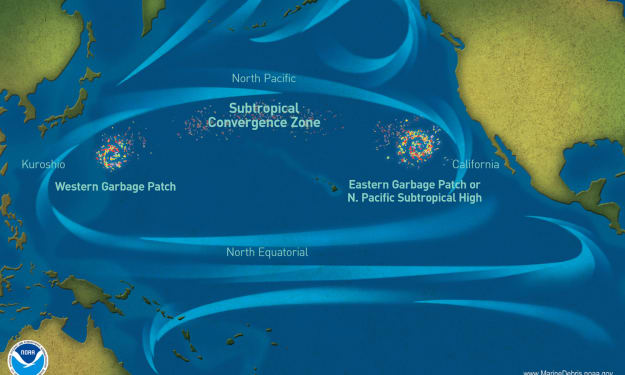Lakes So Full Of Life, But What Of The Future
Simply Saving Our World

Most people know what a lake is in general terms; a large body of water enclosed by its surroundings or through the efforts of man. But have you ever wondered about how its like to live in a lake? Lakes are one of our earths greatest sources of fresh water and many creatures depend on it, both terrestrial and aquatic. More creatures actually live underwater than on land, over fifty percent in fact. We rely on them for food and for many other valuable resources that we need, but what about our future needs.
Since ancient times, both animals and plants have relied on what few water sources were available in order to survive, such as lakes, ponds, and rivers. Even going as far back as the times of the dinosaurs and ice age, most of life congregated around what water there was. We see this in many of our archaeological finds when we dig up fossils of creatures before us. A great example of this would be the La Brea Tar Pits in California, where animals were found buried on top of one another over time. Many of these creatures were drawn to these pits in search for water, especially when it came to times of drought or when there was very little game to hunt. Dinosaurs often followed the same routes, trying to obtain water from receding ponds and lakes, only to become stuck and die of dehydration or predation.
Water was a lifeline for most of life back then and it still holds true today. Even us humans cannot go without water for so many days without dying from the lack thereof. Lakes are a vital resource that we depend on for a variety of things, such as agriculture, nature preservation, and staying alive. It is something precious to us, but that does not mean that we should take it for granted. Many creatures depend on bodies of water in order to survive and thrive, both in and out of the water. Within the area surround a small lake, you could have hundreds of different kinds of creatures that drink from it and thousands that live within its depths.
If you really think about it, the oceans that surround the continents are basically just vast salty lakes with varieties of ecosystems that can't even be measured and billions of creatures depend on it. Just like the creatures you would find around a small lake, we rely on the ocean for a lot of our own personal needs. Life within these bodies of water is always moving and changing with the times, and we ourselves are a big impact on it. These impacts can be for the good, but most ends up being for the worst. With every place we encroach into the waters of the world, more and more of it is getting destroyed. Most of this is through the means of pollution, habitat lot, and lack of available food for the marine life that lives there when we harvest fish and other marine creatures to sustain our ever growing communities.
Every place on this earth, especially the waters that envelop it are like one big house. If it is taken care of, people can thrive in it and enjoy the benefits it gives. But if one does not take care of it, leaving trash around and wastes what valuable resources are given, everything takes a nose dive and people are either evicted or leave it for someone else to clean up the mess. The same goes for anything below the waters surface. Waters are continuing to become more polluted from trash and other waste materials or are running out of available habitats for creatures to live. If we continue to go about as we are and pollute our waters wherever we go, soon there will be no lifeline left for us to survive.
With simple steps however, we can turn the tide around and bring our waters back to their former glory. If one is outside and has trash that's recyclable, put it in the right containers and don't leave everything in the trash can. Almost eighty percent of the recyclable trash we throw away ends up in our landfills, lakes, rivers, and oceans. This can be easily avoided it we take careful care not to leave what is harmful to our surrounding environments where they don't belong. With water it is the same way. If people are willing to only use what is essential and not waste tons of water in places that would eventually flood out into into our rivers and oceans, we would not be having habitats and lives ruined from excess silt and chemicals washing into our water sources. Little changes can make a big difference if one takes the time to implement them.
People every day are finding ways of reusing or renewing things that would otherwise be wasted. For example, people using water bottles as flower pots and creating ladder gardeners where all excess water flows to the plants below so none is wasted. Simple solutions like these help prevent us from destroying things that we rely on, which in turn provides for ourselves and I know it keeps our environments looking much better too. Even with these solutions it is still not enough. We keep pumping out more things that are harmful to our world and unless we band together for the greater cause, our beautiful lands we hold so dear will look more like a landfill within a few years. Take a moment to look at your actions and see what you can change. It may not amount to much, but you will at least know you did your part to the best of your abilities for our world.
About the Creator
Toby Heward
Creativity is boundless. We are gardeners that bring forth these fruits of wonder. Nature is my passion and I love to help readers see the stories with their own eyes through my works. Whether its poems, fact, or fiction I bring it to life.
Enjoyed the story? Support the Creator.
Subscribe for free to receive all their stories in your feed. You could also pledge your support or give them a one-off tip, letting them know you appreciate their work.






Comments
There are no comments for this story
Be the first to respond and start the conversation.